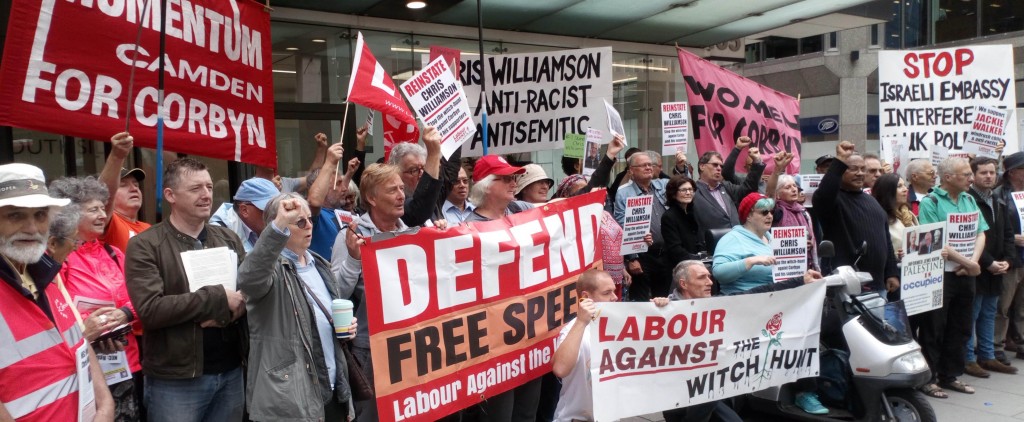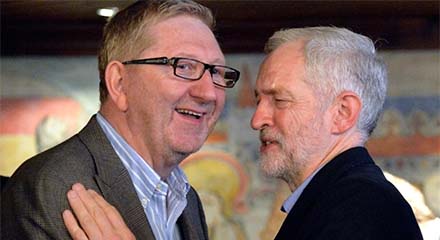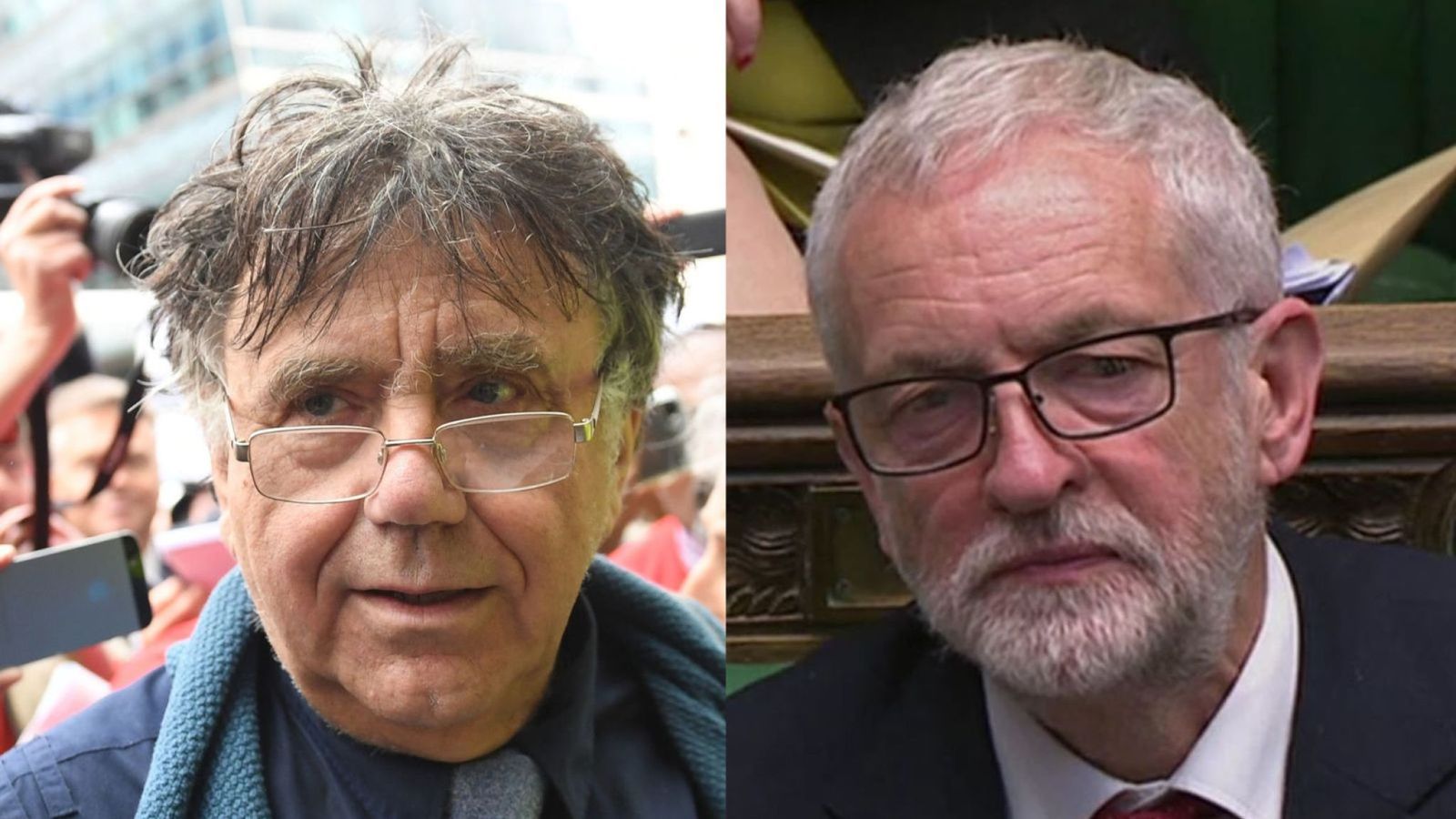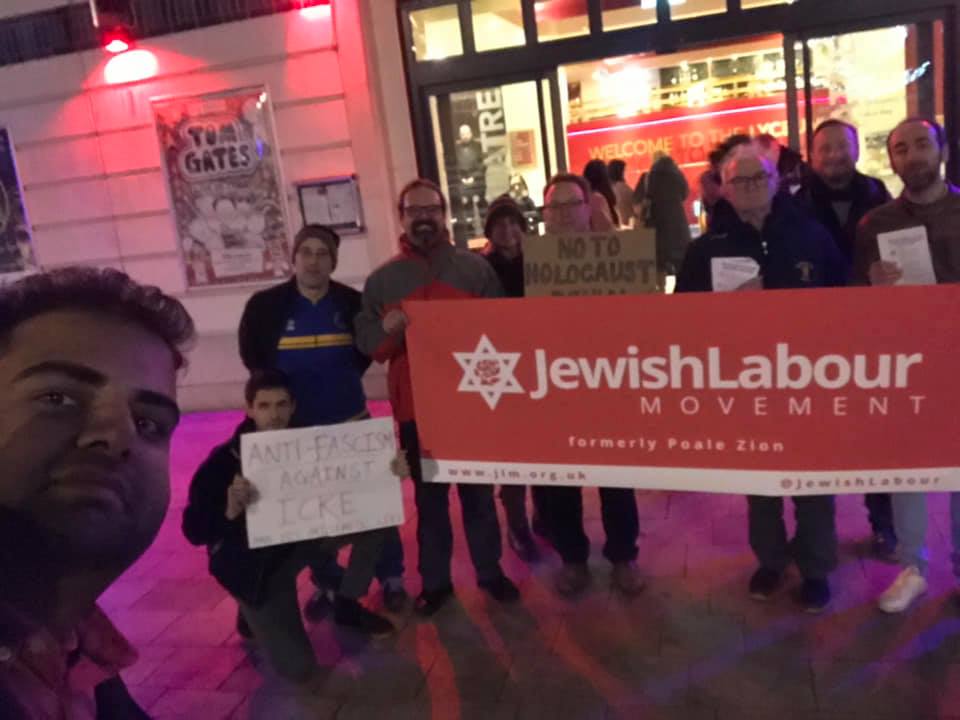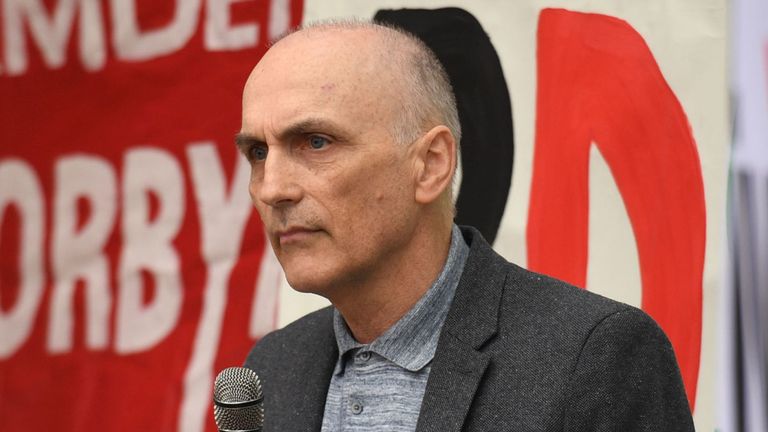There are now more reform groups in Momentum than owners. But, asks Carla Roberts, can they succeed?
We must admit that, from the outset, trying to reform Momentum in any meaningful way looks to us very much like the kind of punishment we can safely leave to King Sisyphus. It is a huge task, destined to fail.
Having said that, Jon Lansman, owner of Momentum, is clearly displaying signs of having come under some kind of pressure somewhere. His attempt to get rid of Tom Watson with a motion on Labour’s national executive committee (that he then withdrew), for example, was probably a sign that he is trying to pose left. We write ‘probably’, because the man has done so many weird things that we cannot always guess his motivation without going down to psychological levels. (Pride of place takes his embarrassing campaign last year to become general secretary of the Labour Party – against Jennie Formby, who was favoured by not just the mighty Unite union, but also Jeremy Corbyn himself. And when he withdrew, Lansman claimed that his only motivation in standing was “to increase the gender balance” – oddly enough, by standing against a woman!).
In any case, we have recently seen three attempts to make Momentum more democratic.
Starting with the least serious one, in June we spotted an article on the website Red Flag (which is where the dwindling remnants of Workers Power have gone to die). Jeremy Dewar wrote that “up and down the country Momentum groups are the backbone of the leftwing membership; organising campaigns, turning out for elections, taking control of local parties and turning them outwards”. The article argued that those super-active Momentum members should fight “for a sovereign conference”. This article is still doing the rounds on Facebook, somewhat bizarrely in our view.
Then, in July this year, a small group of people around Pat Byrne launched their ‘Call for membership control of Momentum’. They at least take note of a few recent qualitative changes within the organisation, like Jon Lansman’s witch-hunting campaigns against Chris Williamson MP and Pete Willsman. However, the comrades are more than naive in their assumption that “Momentum does not belong to Jon Lansman, but to all of its members!” This surely is the main thing that everybody does know about Momentum: it actually does belong to Lansman! Literally! He has tight control over the various companies that control the data and the income.
While Byrne and his comrades admit that Momentum’s constitution “is certainly very centralised”, they believe that its members should make use of the very limited democratic space within it: they should stand for the biennial elections to its national coordinating group (NCG), use the “many avenues in social media for reaching the membership” and get involved in the “the local Momentum groups”.
Their main focus though is on the “procedures for petitions” and “constitutional amendments” that members should make full use of. However, they fail to remind their readers that those petitions and amendments to the constitution require the support of at least “5% of members or 1,000 members”! And if there is no majority on the NCG in support of such a proposal, it then needs “a petition signed by 10% of the membership” in order to “trigger a vote among all members”. This is never going to happen.
In our view, both these proposals come well over two and half years too late. Back then, Jon Lansman stopped “a sovereign conference” from taking place, abolished all existing structures and imposed his undemocratic constitution on the organisation: the Lansman coup of January 10 2017. There are no structures, no avenues left to even fight for a “sovereign conference”. And there remain hardly any functioning Momentum branches. Many groups split in the aftermath of the imposed constitution, others dwindled and died a slow death and some of the few remaining branches have affiliated to the Labour Left Alliance or are in the process of doing so.
Momentum 4 Corbyn
At least the newly established ‘Momentum 4 Corbyn’ does not bother with such illusions – though that is the best thing we can say about it. We understand that the main people behind this campaign, which went public on October 3, are three Momentum NCG members, Barry Gray (who is also acting secretary of Campaign for Labour Party Democracy and a member of the Socialist Action sect), Liz Smith and Christine “fuck the unions” Shawcroft. Shawcroft, remember, went along with the Lansman coup and, when she was still a member of Labour’s NEC, voted to refer Jackie Walker to Labour’s national constitutional committee for expulsion.
On its website, Momentum 4 Corbyn identifies Momentum’s main problem as follows:
Momentum was set up in 2015 in order to support the agenda of Jeremy Corbyn. It is the continuation of Jeremy’s leadership campaign, which resulted in him being elected Labour leader in September 2015 and re-elected in September 2016. Unfortunately Momentum is now diverging from its original purpose; on some issues it fails to support the Labour leadership and on others it even opposes the leadership.
The group’s mission statement praises Corbyn like the second coming of the messiah: “Jeremy is putting forward a truly radical transformative agenda for a Labour government that will make people better off”, etc, etc. Momentum must “return to its original role as a supportive defender of the political agenda that Jeremy Corbyn is advancing”. The comrades want to (re)build a Corbyn fan club, in other words. To that effect, they put forward a long list of ‘evidence’ to prove where “Momentum” (they never mention Lansman) has strayed from Corbyn’s holy script.
To their credit, they do mention the witch-hunt in the Labour Party, though only in the shape of the direct attacks on Jeremy Corbyn. “Momentum appears to give credence to the exaggerated claims made by Labour’s political opponents, conveying a distorted picture of the real situation.” But, you see, “Jeremy is a supporter of international social justice, including Palestinian human rights. There is nothing remotely anti-Semitic in his opposition to the violence inflicted on the Palestinians.”
But what about Jackie Walker, Marc Wadsworth, Chris Williamson or even the CLPD’s Pete Willsman, who remains suspended on bullshit charges? They do not even mention those comrades: it is all about the leader.
Momentum 4 Corbyn does not seem to grasp the simple fact that Corbyn has been complicit in this witch-hunt all along. Not only has he watched silently as comrades Walker, Wadsworth, Willsman and now Chris Williamson have been thrown to the wolves by the NEC. He has legitimised the whole witch-hunt by agreeing with the right in and outside the party that there is a huge problem with anti-Semitism in the Labour Party. By asking Shami Chakrabarti to produce a report, he first opened the doors and showed how vulnerable he is to the witch-hunt – and he has since presided over one climbdown after another.
Corbyn fan club
This underlines that a Corbyn fan club is, at best useless. At worst, it perpetuates the witch-hunt and makes matters for the left (and Corbyn) considerably worse. We desperately need a Labour left that can openly and publicly challenge Corbyn and exert pressure on him from the left. This is, of course, not what Lansman is doing – he has joined those pressurising Corbyn from the right.
Some might say that it is lucky then that the way Gray, Smith and Shawcroft are going about their campaign means it is unlikely to succeed. Their only strategy consists of putting forward candidates to the November NCG elections who “consistently campaign for Jeremy and his politics, not for any alternative agenda”. No names have been published yet, but we believe the NCG three are about to present some very soon (though if a general election is called “by the end of October”, Momentum’s NCG elections will be postponed until next year).
This is exactly the discredited method of the so-called ‘Centre-Left Grassroots Alliance’ (which, if it has not already imploded, will surely do so now). Until recently, this is where soft-left Labour groups, including the CLPD and Momentum, got together to haggle over which centre-left candidates they should urge their members to vote for. The rightwing NEC member, Ann Black, was on the CLGA slate for decades.
It is therefore not surprising that this group has almost nothing to say, when it comes to “internal democracy”, apart from voting for its recommended NCG candidates. All power to the NCG, basically. However, only 20 of the 34 seats on this body are actually elected by members. The rest are made up of:
- four Momentum members who are Labour public officer holders;
- six members nominated by affiliated trade unions;
- four members nominated by other affiliated organisations.
Jon Lansman has made sure that the NCG will never be able to decide on any democratic changes (unless he wants it to). Any changes have to be made by a unanimous vote on that body. A proposal brought by an NCG member that is rejected even by one other person on the NCG will also have to be supported by “10% of the membership”. Then there is the next hurdle: Lansman is in full control of that database and can (and obviously has done so) manipulate elections as he pleases.
In June 2019, Momentum members were asked to participate in a ‘democracy ballot’ to make “Momentum more members-led” and “improve accountability”. There were three concrete proposals “coming from the national coordinating group meeting in March”: one to decrease democracy by having elections to the NCG every two years instead of annually; the second to expand the number of people elected onto the NCG from 12 to 20; and the third to increase the number of regions from three to five. Thrilling stuff.
An embarrassingly measly 357 people bothered to vote 1)Email from Momentum, June 21, 9am – and, as Momentum never takes anybody off their database, we know this poll was literally sent to tens of thousands of people, including many who had long stopped making payments to the organisation.
As the proposal to move to biennial elections was not approved by the NCG unanimously (but opposed by Gray, Smith and Shawcroft and a couple of others), it had again to be sent to everybody on the database. This time, in September 2019, the number of participants magically rose to 4,150. It took a staggering four months to make a decision on a couple of nonsense proposals that could be summed up in five short words: an absolute waste of time.
Momentum 4 Corbyn complains – now! – that “the conduct of the ballot itself raises questions about democracy in Momentum, as only an argument in favour of this measure to reduce democracy was presented to members, and the proposal was falsely dressed up as a ‘democratising’ proposal. No alternative view was circulated to Momentum members by the NCG.”
Fair enough, but why did these NCG rebels not come out publicly at the time? Where are their reports of the NCG meetings they have been attending for years? Where is their public criticism? Where is the transparency in their campaign? How can Momentum members actually get involved? They cannot, obviously – apart from voting for the NCG members chosen by Barry Gray and co. A democracy campaign utterly devoid of any democracy, in other words.
And what is their solution to the lack of democracy in Momentum elections? Fasten your seatbelts. We can read in the July NCG minutes that Barry Gray wanted the Electoral Reform Service to run internal Momentum elections instead. The idea was rejected by the NCG by seven votes to five.
Reformed?
Momentum certainly filled a political vacuum when it was launched just after Jeremy Corbyn won the leadership elections in 2015. It attracted not just the young, relatively inexperienced crowd who became caught up in the Corbynmania, but also many of the seasoned Labour left activists who had been re-energised by the victory of a self-declared socialist. At its height, Momentum claimed to have 35,000 paying members (and a database of many more tens of thousands). This figure might or might not be based on fact, but we can be certain it is a lot lower now. Not that it is something Jon Lansman – founder, owner and all-round puppetmaster of Momentum – would openly publish.
We can glean from the accounts submitted for Momentum Campaign Ltd that the company claims to have had £145,659 in its various bank accounts at the end of December 2018, which is about £6,000 more than the year before. It also claims to have 21 employees, but, as it has paid a measly £19,205 in “taxation and social security” combined, we do not think many of them can be earning much (the figure stood at just over £42,000 the year before). You cannot actually work out how much in membership fees the organisation has received. But we do know that thousands, if not tens of thousands, have left Momentum.
Lansman has to be held personally responsible for this wasted opportunity. But in our view, that ship has now sailed. Sure, Momentum’s various bits of software and the huge database might still come in handy in a general election campaign. But the left should not waste any more time trying to rescue or reform this shell of a an organisation.
We believe that the nascent Labour Left Alliance is far more likely to have caused some of Jon Lansman’s recent, pseudo-left poses. Over 1,500 people have now signed up to the campaign, as have more than 20 Labour left groups and four Momentum branches. Clearly, building a viable, democratic and transparent Labour left is the best way to challenge and overcome anti-democratic left wannabe dictators like Jon Lansman.
References
| ↑1 | Email from Momentum, June 21, 9am |
|---|
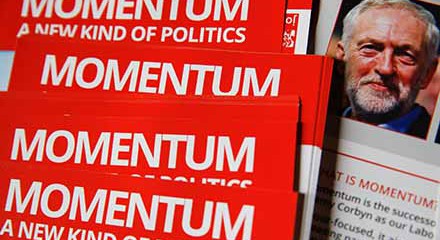
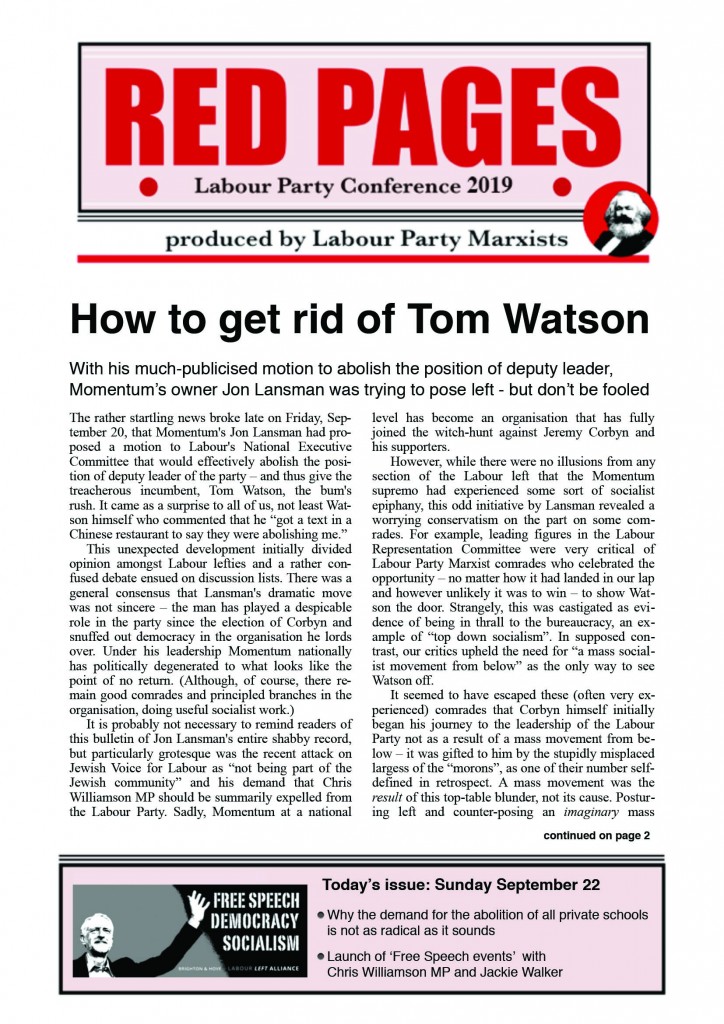 Click to download today’s issue in
Click to download today’s issue in 